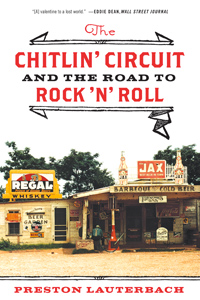 Born July 8, 1905, Vicksburg, Mississippi
Born July 8, 1905, Vicksburg, Mississippi
Died April 23, 1940, Natchez, Mississippi
Circuit active: 1931-40
In 1930 all was well for Walter Barnes. While the rest of the country felt the fallout from the 1929 stock market crash, Barnes was Depression-proof, leading the house band at Al Capone’s Cotton Club in Cicero, Illinois. As renowned bassist Milt Hinton recalled, “The Barnes band was the band to be in then. It wasn’t special, but it was Al Capone’s pet…Capone had opened up this tremendous club as a hangout for his boys, the whole syndicate. It was Prohibition time. They controlled all the liquor in Chicago, and they had nothing but money.” But Barnes’ fate turned with that of Scarface. When the Feds cracked Capone February 28, 1931, Barnes lost the best friend his wardrobe ever had. He hung on for a year, thanks to bookings from the Capone-satellite talent agency, MCA, but by the next year, he’d become a reluctant independent businessman.
Barnes the journalist had started out as the Chicago Defender band columnist, finding time between Cotton Club shows to relay  local band gigs and gossip. The Defender circulated nationally, and Barnes’ name began to get around. Touring the Midwest for MCA broadened his perspective. He met territory dance promoters and performed at nightclubs, brotherhood temples, and requisitioned agricultural buildings. He sensed opportunity in the world beyond Chicago, and after Capone’s strength waned, Barnes used his Defender platform to explore it. “Walter Barnes would like to communicate with all promoters and clubs who are interested in first class dance promotions,” he wrote in February 1932.
local band gigs and gossip. The Defender circulated nationally, and Barnes’ name began to get around. Touring the Midwest for MCA broadened his perspective. He met territory dance promoters and performed at nightclubs, brotherhood temples, and requisitioned agricultural buildings. He sensed opportunity in the world beyond Chicago, and after Capone’s strength waned, Barnes used his Defender platform to explore it. “Walter Barnes would like to communicate with all promoters and clubs who are interested in first class dance promotions,” he wrote in February 1932.
 Answers were not long in coming. With his ultramodern media savvy, Barnes created an aura and an audience for himself throughout black America. If Barnes is known at all today, it is for his spectacular death. The Chitlin’ Circuit explains, for the first time, Barnes crucial role as a pioneer of one of the most important institutions of American popular music.
Answers were not long in coming. With his ultramodern media savvy, Barnes created an aura and an audience for himself throughout black America. If Barnes is known at all today, it is for his spectacular death. The Chitlin’ Circuit explains, for the first time, Barnes crucial role as a pioneer of one of the most important institutions of American popular music.

